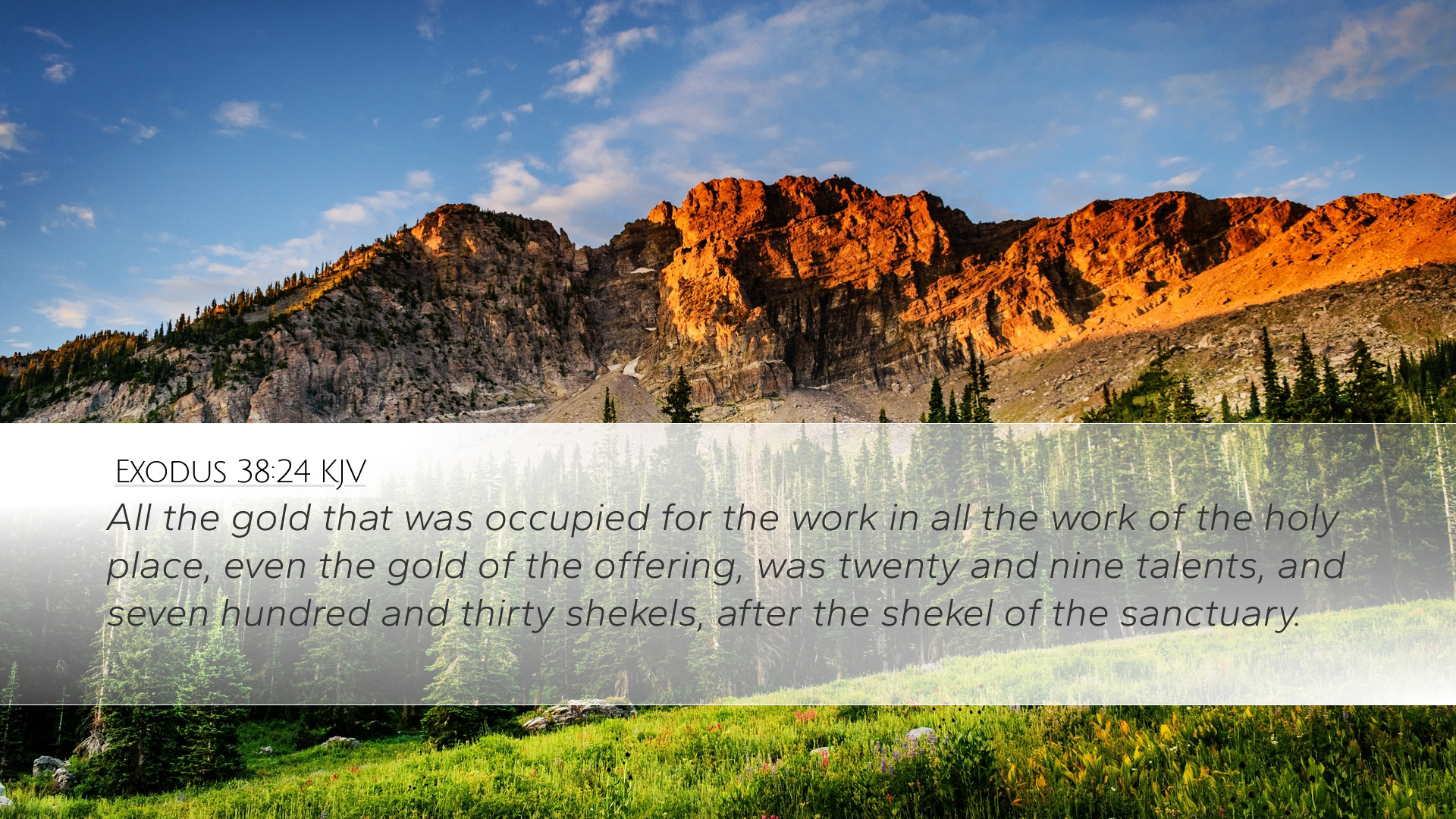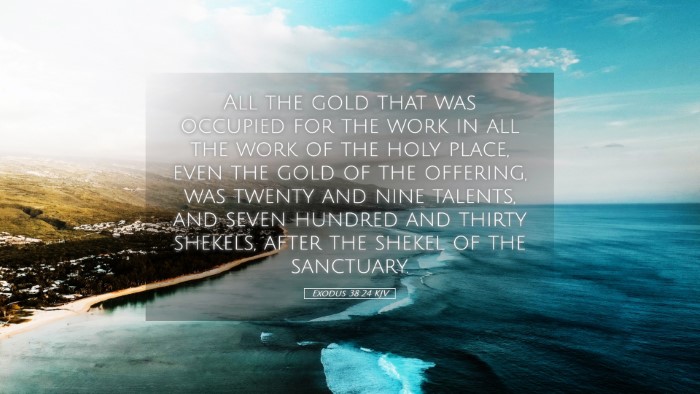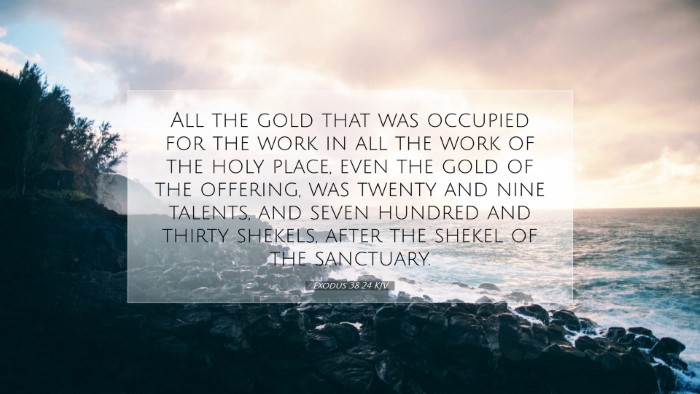Commentary on Exodus 38:24
Exodus 38:24 states: "All the gold that was used for the work in all the work of the holy place, even the gold of the wave offering, was twenty and nine talents, and the seven hundred thirty shekels, after the shekel of the sanctuary."
Introduction
This verse provides crucial details regarding the materials used in the construction of the Tabernacle, emphasizing the worth and value assigned to items intended for divine worship. It opens a window into the priorities of the Israelites during their wilderness journey and their understanding of the sacredness of worship.
The Significance of Gold in Worship
As Matthew Henry highlights, gold signifies purity and divine glory, representing the preciousness of God’s presence among His people. In the context of Exodus 38:24, the abundance of gold reflects the reverence the Israelites had for the worship of Yahweh.
-
Divine Value: Gold in biblical literature is often seen as a metaphor for God's glory (Psalm 19:10). The Israelites chose to use this precious metal to construct elements of the Tabernacle, which were to house the divine presence.
-
Symbol of Sacrifice: The verse hints at the wave offering which recognizes the Israelites’ act of dedication, suggesting that the gold used was not just an expenditure but also a spiritual investment in their covenant with God.
Understanding Talents and Shekels
Albert Barnes notes the significance of the measurements provided—twenty-nine talents and seven hundred thirty shekels. It serves as a historical record to highlight the enormous financial commitment made towards the sacred space.
-
Measurements Explained: One talent weighed about 75 pounds, indicating a significant quantity of gold was involved. The quantification demonstrates God’s desire for His house to be not just functional, but resplendently glorious.
-
Shekel Value: The shekel reference aligns with the established currency of the time, providing authenticity to the accounts in Exodus. This connotation of value reflects the Israelite tradition of offering the best to God.
The Role of Offerings
Adam Clarke emphasizes that the contributions to the Tabernacle were voluntary, demonstrating an organic response to God's call. The willingness to give was foundational to Israel’s identity as a covenant community.
-
Voluntary Generosity: The wave offering was a designation for a consecrated gift, representing Israel's acknowledgment of God’s lordship over all possessions. The act of giving contributed to a larger collective spirituality.
-
Community Involvement: This communal participation not only fostered a sense of belonging among the Israelite tribes but also unified them in their mission to construct a place of worship where God would dwell with them.
Theological Reflection
This verse invites profound theological reflections on our relationship with God and the significance of giving. Pastors and theologians might consider how financial generosity aligns with spiritual devotion.
-
Heart Conditions: Encouraging believers to assess their own "gold" in terms of time, talents, and treasures, echoing 2 Corinthians 9:7 which advocates for cheerful giving, reinforces the spirit in which offerings should be made.
-
God's Provision: Another layer is understanding God's provision; every contribution towards the sanctuary was a reminder that all gifts come from Him, calling believers to steward resources wisely and generously.
Conclusion
The elaboration on Exodus 38:24 underscores a vital principle: that worship involves cost. The Israelites did not offer merely out of obligation but out of a heartfelt response to God’s grace. This scripture remains integral in discussions about stewardship, worship, and community engagement. Ultimately, it calls believers today to reflect on their sacrificial contributions towards worship and the church, urging a continuous practice of recognizing God's sovereignty in all facets of life.


